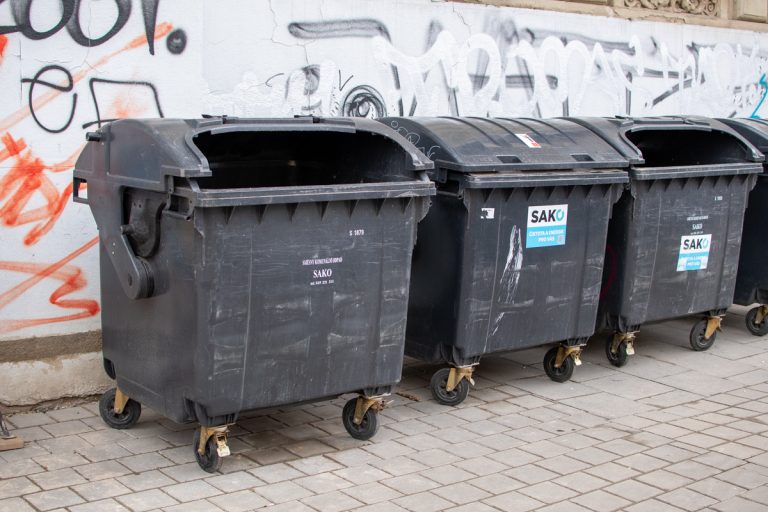A new decree governing fees for the municipal waste management system will apply from January 2022. It will replace the original one in its entirety, but the basic rate of the waste fee will not change. Some new legal exemptions will be added to the existing ones. Photo Credit: KK / BD.
Brno, June 8 (BD) – On June 2nd, Brno City Council recommended a new decree on the fees for the municipal waste management system. The new decree will apply from January 2022 and includes a change in the name of the municipal waste fee, the charging of legal entities as owners of real estate, and extra exemptions from paying the fee. However, the basic rate will remain at CZK 670 per year.
“Although the amount of municipal waste from the City of Brno has been constantly increasing since 2016, we decided to leave the fee at the current level. We believe that especially today, at a critical time when many citizens are facing economic difficulties, it is not desirable to make their lives more difficult with additional financial costs,” said Mayor of Brno Markéta Vaňková (ODS).
Who is exempt from the fee?
Exemptions from the waste fee include children who will not have turned four years old in that calendar year, seniors aged 70 and over, those who are permanently registered at an official residence, or those serving a prison sentence (except house arrest). Taxpayers with permanent residence in Brno who own a house for recreation in which no person is permanently registered as a resident do not have to pay, but owners living outside Brno are not exempt from the fee.
Children who have court-ordered institutional upbringing, or are placed in facilities for immediate assistance, the disabled, the elderly, or people in sheltered housing are also exempt from the fee. Families with more than two children do not have to pay for the third or subsequent children, according to First Deputy Mayor Petr Hladík (KDU-CSL).
“Now, however, taxpayers will also include legal entities owning an apartment or house in which no natural person is reported resident. This could affect about 4,000 legal entities,” added Hladík.








